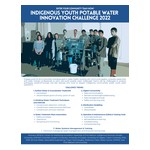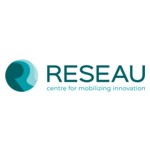Ikusik High School Students from Salluit, an Inuit northern village in the Nunavik Region of Québec to present proposed innovations to over 100 First Nations Water Operators in an event in Vancouver on October 18
VANCOUVER, British Columbia–(BUSINESS WIRE)–#BazziniConsort—WHAT: Seven students from a Nunavik high school will present their innovative ideas to improve drinking water health in their community as part of the national Indigenous Youth (K-12) Potable Water Innovation Challenge.
WHERE: The students will present their ideas to university researchers, industry leaders, entrepreneurs and First Nation Water Operators, in an event held at University of British Columbia, Department of Chemical and Biological Engineering, Room 202,
2360 East Mall] in Vancouver BC, V6T 1Z3
WHEN: Tuesday, October 18, between 11:00 – 15:00
INTERVIEW OPPORTUNITIES: The following people will be available on site/virtual prior to and after the session:
- Eugene Henri KOULLA (High school teacher)
- Professor Stephanie Guilherme, University of Ottawa, Mentor
- Professor Madjid Mohseni, Scientific Director, RESEAU Centre for Mobilizing Innovation
- Student Team
PHOTO/VIDEO OPPORTUNITIES: will be available on site. The student’s presentation to the panel is not open to photography or filming.
RSVP/ONSITE CONTACT: Madjid Mohseni, connect@reseaucmi.org
About the Indigenous Youth (K-12) Potable Water Innovation Challenge: The National Challenge is an open competition among youth designed to ignite a passion for science and innovation, community health, water-health and community service in young people, and business creation. This pilot initiative is predicated on principles of self-determination and self-government, developed and coordinated by RESEAU Centre for Mobilizing Innovation, the Challenge allows youth teams to engage elders and community leadership to identify local water challenges (e.g., watershed-specific issues in terms of natural and man-made stresses such as industrial or agricultural use and climate change), barriers to solving them and potential solutions. With mentorship from university researchers and water industry experts, the teams will develop a solution to solve a single challenge. Then, they workshop their idea with entrepreneurs before presenting their ideas to their community. Their work will be judged by their community and an Indigenous Advisory Council, who are also overseeing the program development, for opportunities for accelerator support to develop creative ideas into actual products and services to serve their community (and Indigenous communities at large).
About RESEAU Centre for Mobilizing Innovation: RESEAU is a nonprofit centre of excellence dedicated to the design and implementation of innovative solutions for drinking water quality and community health in Indigenous and rural communities. Through rigorous proprietary (multi-award-winning) problem-solving methodology, The Community Circle™, we ally with rural and Indigenous communities to develop innovative solutions for their water-health challenges and define success on their unique terms. In addition, we ensure all actionable insights are independent, objective, and tailored to the communities’ goals and priorities, building grassroots trust and confidence in driving the product development cycle from concept to execution and beyond. Together, we have solved several long-standing boil water advisories in rural settings, redefining sustainability, the economics of drinking water, and community health along the way. www.reseaucmi.org
Contacts
Madjid Mohseni, connect@reseaucmi.org







